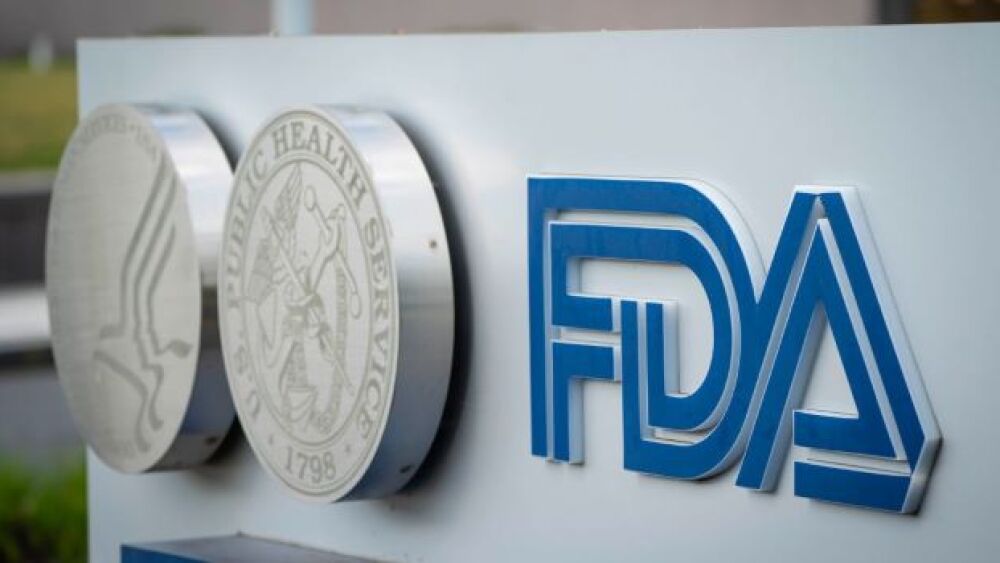The second half of March is a busy month for the U.S. Food and Drug Administration (FDA), with quite a few PDUFA dates scheduled. Here’s a look at this week’s target action dates.
Sarah Silbiger/Getty Images
The second half of March is a busy month for the U.S. Food and Drug Administration (FDA), with quite a few PDUFA dates scheduled. Here’s a look at this week’s target action dates.
Karyopharm’s Xpovio with Velcade for Multiple Myeloma
Karyopharm Therapeutics’ Xpovio (selinexor) in combination with Takeda’s once-weekly Velcade (bortezomib) and low-dose dexamethasone had a target action date for its supplemental New Drug Application (sNDA) for March 19, 2021. It was approved for this indication and combination on December 18, 2020. The submission was based on results from the pivotal Phase III BOSTON study, which met its primary endpoint with a significant increase in median progression-free survival (PFS) in patients with multiple myeloma after one to three previous lines of therapy. The median PFS in the selinexor arm was 13.93 months compared to 9.46 months in the Velcade arm. No new safety signals were observed.
The drug is a first-in-class, oral Selective Inhibitor of Nuclear Export (SINE). It was previously approved under the FDA’s Accelerated Approval Program for adults with r/r multiple myeloma who have received at least four previous therapies and whose disease is refractory to at least two proteasome inhibitors, at least two immunomodulatory agents, and an anti-CD38 monoclonal antibody.
At the time, Sharon Sacham, founder, president and chief scientific officer of Karyopharm, stated, “Today’s U.S. approval broadens the existing label for Xpovio and allows Karyopharm to offer a new, highly active, treatment option to a significantly expanded patient population. We believe the expanded reach of Xpiovio will address a critical need for patients with multiple myeloma given its novel mechanism of action, convenient oral administration and established rapid and sustained efficacy profile.”
FibroGen’s Roxadustat for Anemia of Chronic Kidney Disease
FibroGen has a target action date of March 20 for its New Drug Application (NDA) for Roxadustat for the treatment of anemia of chronic kidney disease (CKD). The review period had been extended after FibroGen submitted additional analyses of existing Roxadustat clinical data.
Roxadustat is an oral small molecule hypoxia-inducible factor prolyl hydroxylase (HIF-PH) inhibitor. The NDA was based on positive results from the company’s global Phase III program of more than 8,000 patients. The drug has been approved for this indication in China, Japan and Chile.
On March 1, the company and its partner, AstraZeneca, announced that the FDA’s Cardiovascular and Renal Drugs Advisory Committee plans to hold an advisory committee meeting to review the NDA. At that time no date for the AdCom meeting had been confirmed.
“While disappointed with the news today, FibroGen and AstraZeneca are committed to working with the FDA to bring Roxadustat to patients with anemia of CKD in the U.S. as soon as possible,” said Enrique Conterno, FibroGen’s chief executive officer, at the time. “We continue to be confident in the efficacy and safety profile of this potential new medicine based on positive results from a global Phase III program encompassing more than 8,000 patients.”
Kiniksa’s Rilonacept for Recurrent Pericarditis
Kiniksa Pharmaceuticals has a target action date of March 21 for its supplemental Biologics License Application (sBLA) for rilonacept for recurrent pericarditis. It was granted priority review. Rilonacept is a weekly, subcutaneously-injected, recombinant dimeric fusion protein that blocks interleukin-1 alpha and interleukin-1 beta signaling. The submission was based on positive results from its Phase III RHAPSODY trial. The trial met its prespecified primary and all major secondary efficacy endpoints, demonstrating the drug improved clinically meaningful outcomes associated with the significant unmet medical need in recurrent pericarditis.
The drug was discovered and developed by Regeneron Pharmaceuticals. It is approved by the FDA for Cryopyrin-Associated Periodic Syndromes (CAPS) under the trade name Arcalyst. Kiniksa licensed the drug from Regeneron in 2017 for diseases believed to be mediated by both interleukin-1 alpha and interleukin-1 beta, including recurrent pericarditis. If approved for this indication, Kiniksa will take over for sales and distribution for all the approved indications in the U.S. and evenly split profits with Regeneron.





